Request a Demo
Trusted by leading brands, retailers, manufacturers and service providers across industries such as:



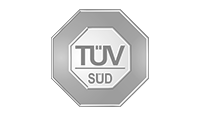


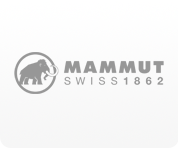





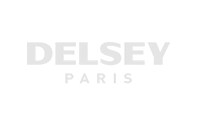

Our world’s forests are under threat. Deforestation is happening at an alarming rate and ten percent of the world’s tree cover has been lost over the last 30 years – representing an area larger than the European Union (EU).
This has a devastating impact on biodiversity and global efforts to tackle climate change.
It is not without good reason then, that regulations to prevent further degradation are coming thick and fast. The EU has taken a leading role in addressing deforestation with its Deforestation Regulation (EUDR), which was initially set to come into effect on 30th December, but a new proposal from the European Commission suggests a potential delay. But what is the EUDR and how will it impact businesses?
The new regulation targets traders in seven forest risk commodities: soya, cattle, oil palm, wood, cocoa, coffee, and rubber. Once implemented, all imports to the EU of these commodities must demonstrate that their products have not contributed to deforestation.
Measures include a ban on the import and export of non-compliant products, due diligence requirements for businesses and traders, an obligation for EU member states to ensure compliance, and the establishment of an EUDR database and information system.
The regulation was published in the Official Journal of the European Union on 9 June 2023 and entered into force on 29 June 2023. However, on 2nd October 2024,The European Commission has announced a proposal to delay the EUDR implementation deadlines. Check out the press release here: EUDR Delay Announcement.
European Council has approved and now waiting for the decision from European Parliament, if approved the new deadlines will be:
Small enterprises are defined as businesses with a balance sheet of less than four million Euros, a net turnover of less than eight million Euros, or fewer than 50 employees.
This extension provides companies with additional time to prepare for compliance. But it’s crucial to start working on this immediately! Mapping supply chains and ensuring EUDR compliance still requires significant effort and information gathering.
Operators and traders will soon need to obtain the geolocation coordinates for the site where commodities were produced or harvested, as well as the date or time range of production. But it is not just raw materials which are targeted under the EUDR.
An extensive list of derivatives is also included in the regulations. The list includes, for example, all wood and paper products including charcoal and printed matter, and all rubber products including tires, gloves, and tubing. This regulation aims to ensure these goods are “deforestation-free,” meaning they were produced on land free from deforestation or forest degradation since 31 December 2020.
We live in an increasingly interconnected world. Supply chains are complex, mutable, and ever-changing. Consumer goods are manufactured across multiple sites from commodities crossing borders and legal jurisdictions. This creates significant difficulties for traders trying to comply with sustainability requirements.
To mitigate this difficulty under the EUDR, organizations are permitted to use an “authorized representative” to manage the process of tracking sources, collecting and processing data, conducting risk assessments, audit trails, and submitting the relevant documentation. For businesses in Hong Kong and outside of the EU, who will need to comply with both the EUDR and a myriad of other, often contradictory regulations, this is key.
Designed to help businesses navigate the complexities of this new regulation, Topo Solution’s supply chain solution includes purchase order and batch-level information, including geospatial polygon data to monitor deforestation, automated risk assessments, and workflows for risk mitigation.
Topo’s end-to-end EUDR Compliance Platform is being developed with environmental geospatial leader, Frontierra. Utilizing Frontierra’s advanced satellite monitoring capability, Topo’s EUDR solution also streamlines the generation of due diligence statements and facilitates third-party verification processes,
ensuring customers can efficiently demonstrate compliance with the EUDR.
“Topo’s mission is to empower supply chain transparency. Partnering with Frontierra allows us to take that a step further by giving our customers the geospatial intelligence they need to comply with important regulations like the EUDR,” said Tobias Grabler, Chief Operating Officer, Topo Solutions.
“By leveraging Frontierra’s advanced analytics, our platform can accurately assess the probability of forest cover, detect deforestation risks, classify each production polygon, and provide a comprehensive view of compliance status. This level of detailed, data-driven intelligence is essential for companies to navigate the complexities of the new EU regulations and protect their supply chains.”
The partnership is a significant step forward for both Topo and Frontierra in their mission to empower organizations with the data-driven insights needed to protect forests, monitor land-use changes, and make informed decisions throughout their supply chains.
“We are excited to partner with Topo to provide a seamless, end-to-end EUDR compliance solution. By integrating our geospatial insights directly into the Topo platform, we can ensure that companies have the data and tools they need to demonstrate that their supply chains are deforestation-free, in line with the new EU regulation,” Brigette Reid, Co-Founder and Chief Executive Officer of Frontierra.
“This makes use of the best available data combined with our propriety deforestation algorithm and unrivalled expertise, all whilst minimizing the impact on producers who are at risk of being negatively affected by unverified and unreliable forest loss data.
“By combining Topo’s supply chain expertise with Frontierra’s capability to leverage satellite data to quantify forest coverage, deforestation, degradation, legality and more, we are providing companies with a powerful solution to efficiently demonstrate compliance and eliminate deforestation in agricultural production – one of the most critical systemic threats facing the world.”
Despite US calls for the EU to delay implementation of its new deforestation regulations, for any business, knowing your supply chain is mission critical. With new regulations like the EUDR, you’ll need granular data – even geospatial data – to prove your materials aren’t linked to deforestation. Compliance is key, no matter how the policy debates play out.
Navigating the increasingly complex regulatory landscape around deforestation, ESG, and supply chain transparency is critical for global businesses. Getting ahead of these shifts is key to maintaining market access and brand reputation.
If you would like explore Topo’s EUDR Module, click here to book a demo!